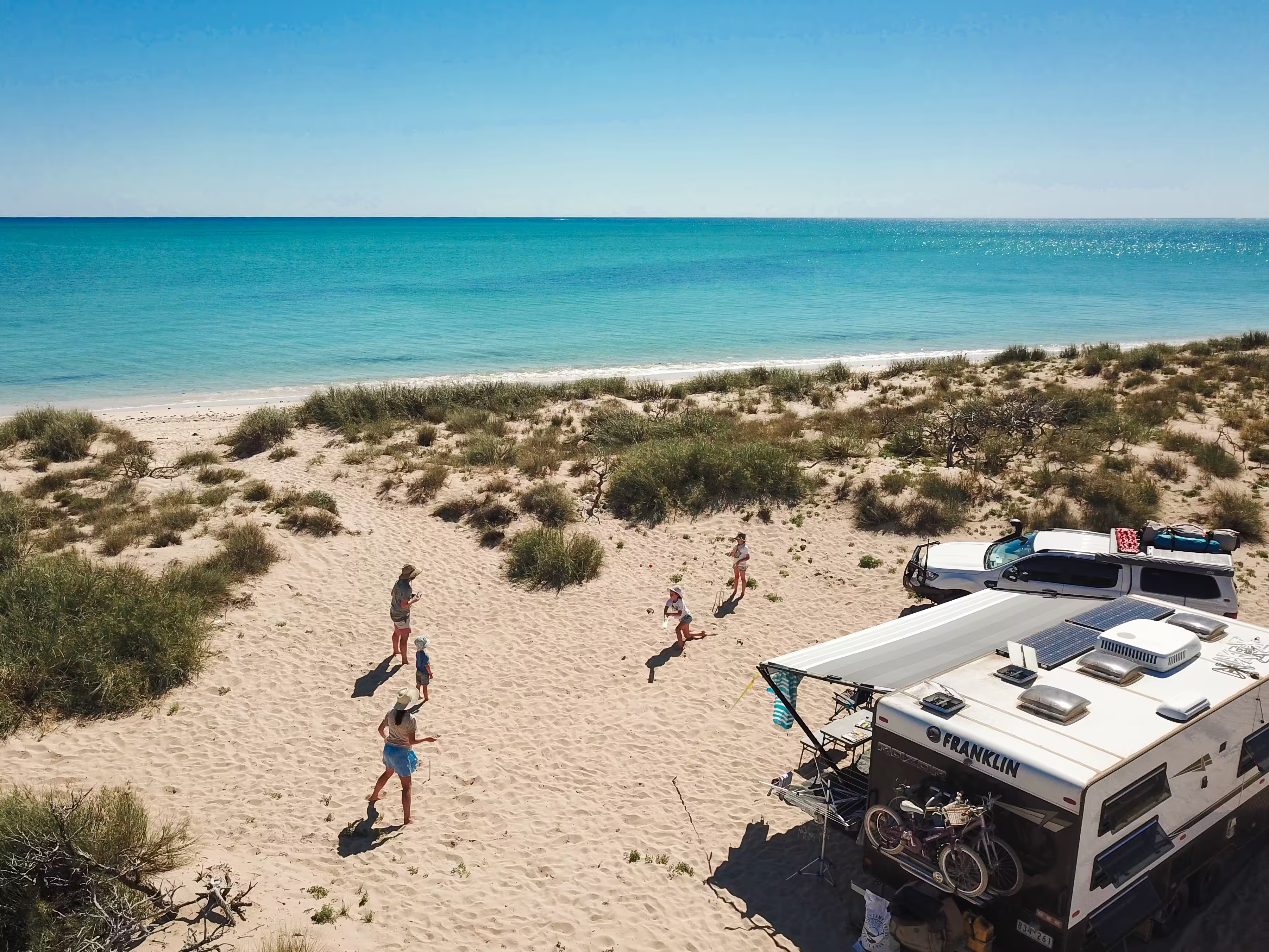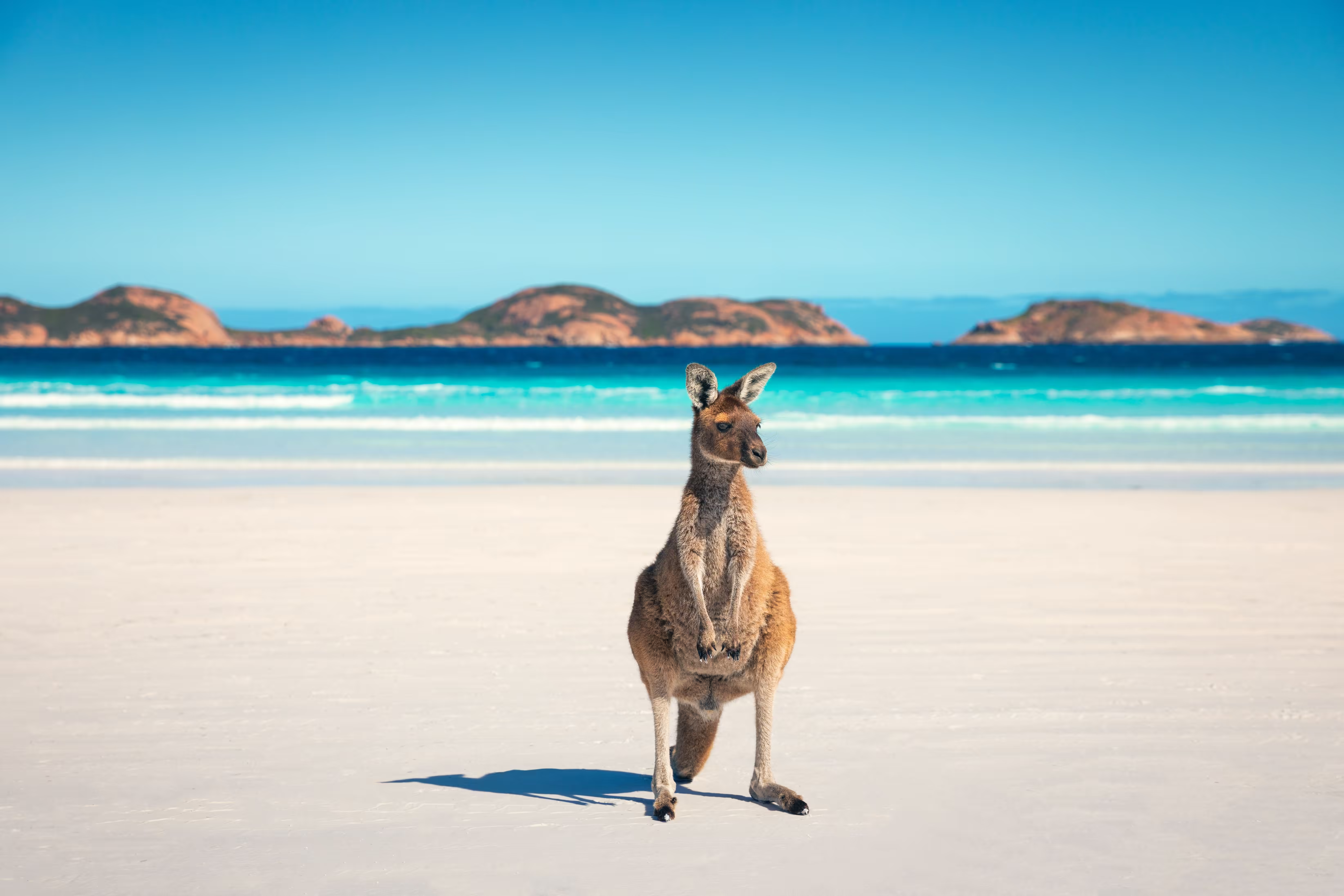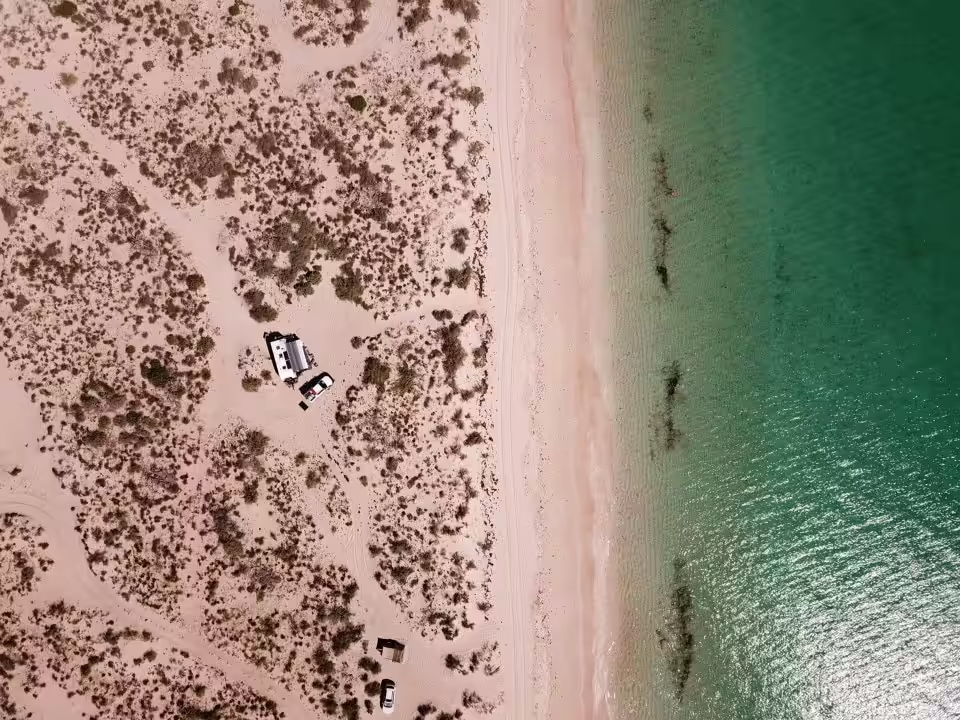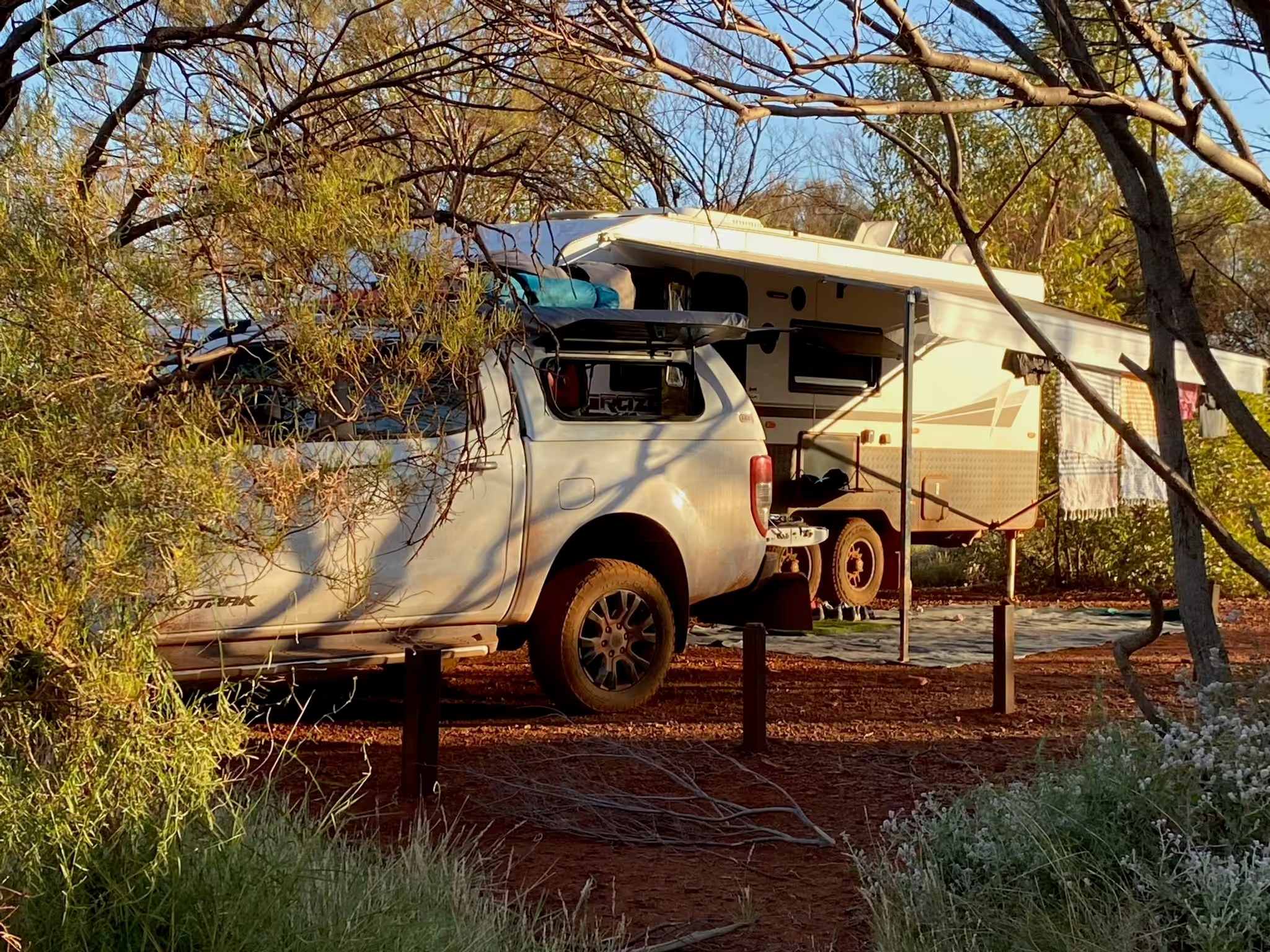We need to talk about ghost camping




A few years ago, we rolled in to Lucky Bay in our caravan, thrilled to have secured a spot at one of Western Australia’s most popular campgrounds. We set up on the hill in Cape Le Grand National Park, overlooking the beach famous for its sand-hopping kangaroos. We were indeed lucky. We’d booked a few months in advance and had planned our south coast journey around this coveted stay. A family we’d met a day earlier in Esperance was not so fortunate. They’d left their run too late and the Lucky Bay campground was booked out, leaving them with no option but to day trip.
But here’s the thing, the campground wasn’t full. Not even close. It was half empty. Yet the WA Parks and Wildlife Service booking system showed no availability for days. And a ‘campground full’ sign at the entrance turned hopefuls away. Perplexed, I questioned the volunteer camp hosts, who were shaking their heads. “It’s always like this,” they said. “Sometimes people want to stay longer and we have to say ‘no, we’re fully booked’, but you look around and the sites are half empty.”

Fast forward a few weeks and we pulled into South Lefroy Bay on the Ningaloo Coast. Another bucket-list spot. Another swathe of empty sites. Another ‘booked-out’ campground. Competition for bookings along this stretch of the WA coastline is fierce. Wannabe visitors often stay up until 2am eastern time to bag a site when bookings open 180 days out. Some do this for several nights until they succeed. Others miss out entirely and take to social media to try to hunt down a last-minute cancellation.
But if people had the courtesy to cancel in the first place, ‘ghost camping’ wouldn’t be a thing. The problem is the cost impact is negligible. When campers are only stumping up $10 a night per person ($5 for kids), there’s not much incentive to cancel. Yes, you can get a refund for cancellations more than 48 hours in advance, but clearly not everyone bothers. Make a speculative booking for a week with a view to adding the spouse and kids later, and if it doesn’t work out, you’ve only lost 70 bucks.
It’s not right but there’s nothing to stop the practice. Ditto the people in other jurisdictions who book several sites for phantom friends, or so they can pick their preferred spot on arrival. In Queensland, authorities have had enough. Last September the Department of Environment Science and Innovation announced it was slapping $322 fines on ghost campers. The fine applies both to no shows and campers who set up their gear and leave it unattended to ‘bag’ a spot, for example in the lead up to a long weekend. Sites in Queensland cost just $7.25 per adult a night.

In Victoria, the government has temporarily scrapped camping fees at 131 campgrounds across the state, finishing at the end of June 2025. The seven-month free camping experiment was a fiasco. Instead of making holidays more accessible to families, as was the intention, it locked many people out as campgrounds booked out en masse. But many of the freebie campers didn’t turn up. Tidal River in Wilsons Promontory – one of the state’s most popular campgrounds – was riddled with empty sites at Easter, in what is usually one of the busiest times of year.
To address the issue of ghost camping, the New South Wales National Parks and Wildlife Service (NPWS) has proposed a controversial overhaul of its campsite booking system. The upshot is campers will pay more at popular times at many campgrounds, commensurate with facilities. In some cases, that means an $89 a night sting, up from as little as $6. But other sites, with no facilities, will be free. The backlash has been fierce, with some campers accusing the NPWS of price gouging and making campgrounds unaffordable. A consultation paper on the proposed fee restructure has attracted more than 23,000 submissions, with a final decision yet to be announced.
The NPWS says the proposed new system would discourage ghost campers and incentivise people to cancel if their plans change. Cancellations made at least three days ahead of the booking start date would receive an 80 per cent refund. The NPWS is resisting full refunds, which it says would only increase speculative bookings. The service says it considered other systems, including fines for ghost camping but the practice was “difficult to enforce”. With more than 365 campgrounds to manage, NPWS resources are presumably already stretched.
This begs the question: are greater fees justified for better facilities and service? Personally, I’m happy to pay more knowing I don’t have to share the serenity with a backed-up pit toilet and overflowing bins. Higher fees also minimise the troublemakers. The bourbon-swilling, late-night-music-blaring litterers with a penchant for cutting down native saplings for firewood. Sure, cashed-up campers can be idiots too.

Some argue that fees and booking systems take the spontaneity and freedom out of camping in national parks and state forests. It’s true. But many free camps can still be found dotted around the country, assuming they haven’t been closed because of antisocial behaviour. For popular campgrounds, a paid booking system, reflective of the facilities, makes sense. I have a large family caravan. I wouldn’t dream of taking a punt on an unbookable site near the city on the eve of a long weekend. And I’m happy to pay more for the privilege of a reserved spot. I’m also happy to be a vigilante campground enforcer, documenting empty sites for authorities – perhaps in exchange for a campsite credit. If the rangers can’t regulate ghost camping, someone should.